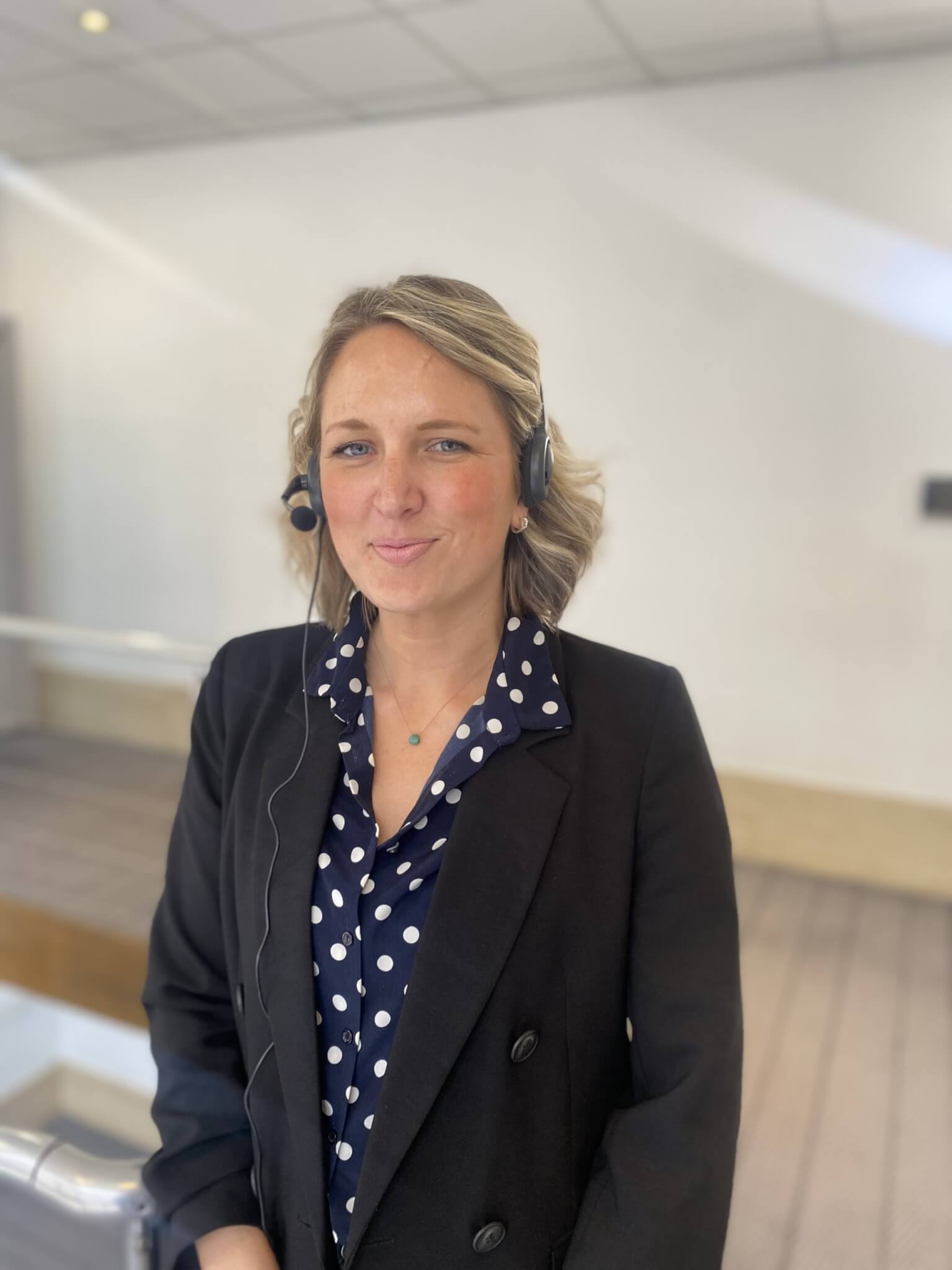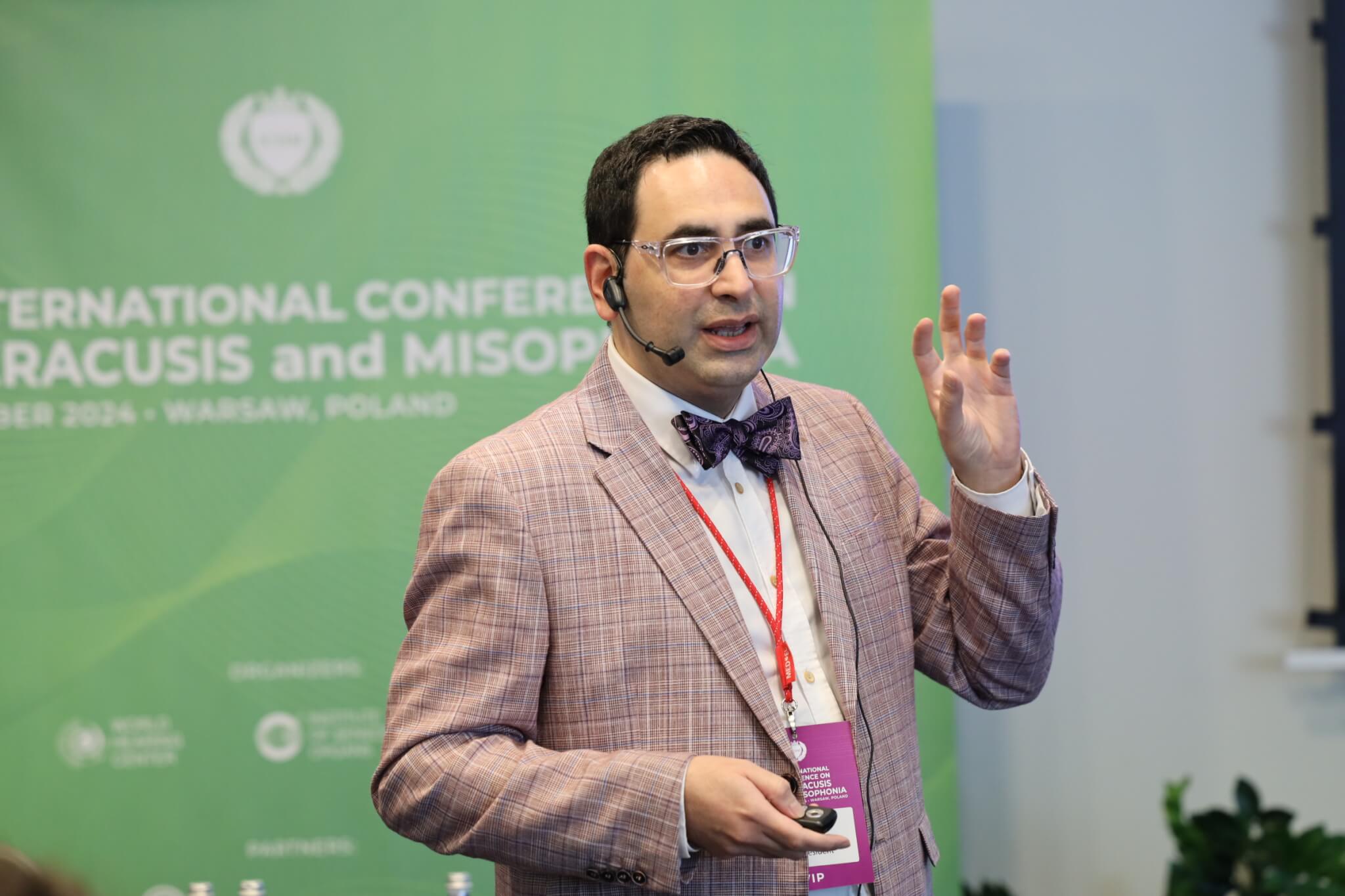
Tinnitus is the perception of sound (e.g., ringing, buzzing, whistle, humming, clicks, etc) in the absence of acoustic stimuli external to the body. Tinnitus can lead to emotional distress, cognitive dysfunction, autonomic arousal, behavioural changes, and functional disability, in which case it is called tinnitus disorder. The prevalence of tinnitus in the adult population is estimated to be about 14%. Jack developed tinnitus (a high-pitched ringing) in both ears following an episode of severe dizziness attack in 2024. He was very afraid of the thought that tinnitus is trapped in his head and can get worse when he gets older. It was more difficult for him to ignore tinnitus at nights because he didn’t have to do anything or to focus on anything and because his tinnitus was much louder at nighttime. He completed a course of internet cognitive behavioural therapy (iCBT) for tinnitus management. This is an evidence-based guided self-help programme which has been designed based on Dr Hashir Aazh’s audiologist-delivered CBT approach for tinnitus management. Jack started from the first iCBT module (Assessment) and went on to completing the other modules in order. The completed modules comprise: (a) Assessment, (b) Introduction to CBT for tinnitus, (c) Behavioural experiment for tinnitus, (d) Challenge your negative thoughts, (e) Diary of thoughts and feelings, (f) Positive psychology in tinnitus management, and (g) Final assessment. These were complemented with several support sessions (via video calls) with our team to guide him through the modules. After the treatment he was very confident that he can undertake his day-to-day tasks, rest, relax and sleep well at nights, and enjoy his life fully event with tinnitus. He was also confident that he can achieve these without depending on any avoidance or ritualistic behaviours. He rated the effectiveness of iCBT in helping him manage his tinnitus as 9/10. He rated his ability to manage his tinnitus differently compared to before he started the iCBT as 9/10.
 Joanna Barker, Specialist Audiologist, adds:
Joanna Barker, Specialist Audiologist, adds:
“We have a multi-disciplinary team that can support patients who undergo self-help iCBT programme with us or enrol in our premier therapy package which comprises targeted cognitive behavioural therapy for tinnitus combined with consultations with a multi-disciplinary team of audiologists, psychologists, occupational therapists, and neuroscientists. There are several different approaches to iCBT. However, they mostly use an internet platform like that for online educational training courses and utilize a mix of educational videos and audio recordings, text, puzzles, games, and assignments for participants to complete. The contents are often developed based on existing self-help materials or on methods that are used in face-to-face therapy sessions, modified for delivery in a self-help format. Self-help iCBT for tinnitus is very cost-effective method. However, patients with more severe tinnitus require more in-depth intervention.”
Jack said:
“I want to thank you for your tutelage of the iCBT program. This program has already helped me with my tinnitus tremendously, and I expect it to help me even more as I practice my counter statements. I enjoyed learning this therapy. The entire program is such an eye opener. And the benefits will go beyond my tinnitus into other areas of my life. I feel it can be applied to any distorted, negative thoughts we may have. Many thanks to you and Hashir International Institute for pioneering this valuable life tool for people with tinnitus.”
 Our Director, Dr Hashir Aazh said:
Our Director, Dr Hashir Aazh said:
“We often wonder why many of patients with tinnitus have been told that “nothing can be done” for their tinnitus. Despite the enormous progress in tinnitus management, there are still patients who develop a great level of stress and anxiety about their tinnitus because someone, often a health care provider, told them it is not curable. For many patients with tinnitus, the cost of management is a significant factor. The introduction of iCBT is an important step in providing a non-invasive, supportive, and affordable method of tinnitus management. The results of our research published in the Journal of American Academy of Audiology showed that the iCBT program for tinnitus had a medium effect size for improving participants’ confidence in managing their tinnitus and a medium effect size for reducing symptoms of anxiety and depression. Click here to read the original paper.”
For further information, please contact:
Hashir International Institute, 167-169 Great Portland Street, 5th Floor, London, W1W 5PF
Hashir International Institute, 54 Quarry Street, Guildford. GU1 3UA
admin@hashirtinnitusclinic.com
About Hashir International:
Hashir International is an independent research institute and treatment centre dedicated to improving the diagnostic process and rehabilitation programs for patients experiencing misophonia, tinnitus and hyperacusis. They offer specialist training courses, ethical review of research proposals, research design, research sponsorship, and supervising MSc and PhD students.